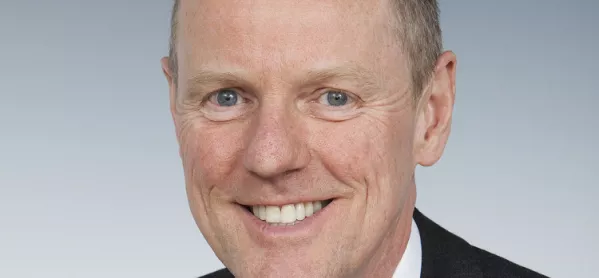School standards minister Nick Gibb faced tough questioning from the Commons Education Select Committee this morning. Here are six things he told MPs.
1. Ministers accept that a series of government reforms have put pressure on teachers
Mr Gibb promised a period of stability after acknowledging the pressure a raft of school reforms has put on the teaching profession.
He said: “There is no question that the reforms that we introduced from 2010 - and they particularly came into effect in the 2014-15 to 2017 period: new GCSEs, new A levels, new Sats, [a] new primary curriculum - they have put pressure on the profession.
“What we want now is a period of stability to allow those very important reforms to bed in.”
He was responding to MP Ian Mearns, who suggested that teacher morale, workload and pay was making teacher retention more difficult.
2. The government ‘hears the message’ about schools facing scrutiny from too many directions
Mr Gibb said that schools had told the government that they were coming under pressure from too many angles.
He said: “They had Ofsted looking at them. They had regional school commissioners or their people and then they had the local authority wanting to talk to them and then they had all the accountability measures.
“Repeatedly when I was visiting schools and when the secretary of state was visiting schools we heard this message. There is too much pressure.”
Mr Gibb said education secretary Damian Hinds’ announcement on accountability changes aims to give teachers space to get on with the job.
3. Salaries of multi-academy trust chief executives are being kept under review
Hull MP Emma Hardy asked whether the department would look at capping the salaries of multi-academy trusts leaders depending on how many schools their trust runs.
She questioned whether it was fair that MAT chief executives could earn more than £100,000 while schools were also having to provide support to pupils in poverty.
Mr Gibb said only 4 per cent of trusts paid more than £150,000. However, he said he was sympathetic to the concerns she raised and this was an area which was under review.
Earlier this year Eileen Milner, the chief executive of the Education and Skills Funding Agency, wrote to 87 MATs that paid more than £150,000 asking them to explain their rationale for doing so.
4. The government accepts that its grammar school expansion plan will only benefit a few thousand pupils.
Committee chairman Robert Halfon repeatedly asked why the government was committing £200 million to a project that would not benefit large numbers of deprived pupils.
He asked Mr Gibb how many young people from disadvantaged backgrounds would benefit from grammar school expansions. Mr Gibb accepted that it would probably only be a few thousand.
Mr Halfon contrasted this with spending £200 million on one-to-one tuition for pupils from poor backgrounds, which he said would benefit around 285,000 young people.
5. Grammar schools could lower the 11-plus pass mark to allow more poor pupils in
Mr Gibb said expansion was the best way of ensuring grammar schools could admit more pupils from deprived backgrounds.
He said grammar schools would have to demonstrate their plans for taking on more children from disadvantaged backgrounds in order to expand adding: “Whether that is by outreach work at primary schools; or whether it is having a different pass mark for the entrance exams in those schools.”
Mr Gibb said that in grammar schools the attainment gap closes but the problem was that they have a smaller proportion of children from disadvantaged backgrounds. He suggested allowing grammars to expand would address this.
6. Ofsted inspections of multi-academy trusts are under review
Mr Gibb revealed that Ofsted being able to inspect MATs was an area that the DfE is keeping under review.
There have been repeated calls for inspectors to be able to look at MATs themselves and not just the schools within them.
Mr Gibb said: “They can certainly batch inspect a large number of academies in a particular chain rather than just waiting for that particular school’s turn to come.
“You can batch them together at the same time and then you get a feel for the quality of education in those particular academies in that multi-academy trust.
“We continue to keep the other issues about whether Ofsted should be looking at the back office and the services provided by the mat to those schools. We keep those under review.”





